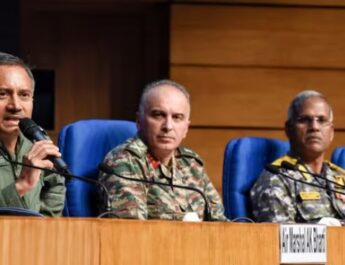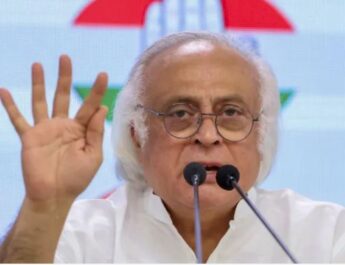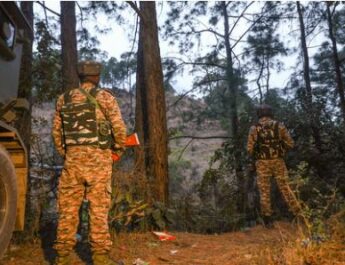Employing the metaphor of the ‘chakravyuh’ as a recurring theme, Rahul Gandhi, the Leader of Opposition in the Lok Sabha, asserted on Monday that a pervasive sense of fear has been instilled across the nation, with a sextet of individuals ensnaring the entire country in a ‘chakravyuh’ that he vowed would be dismantled by the INDIA coalition.
During the Lok Sabha debate on the Budget 2024-25, Gandhi declared that the Indian National Developmental Inclusive Alliance (INDIA) is committed to securing a legal assurance for the Minimum Support Price (MSP) and the implementation of a caste census, both of which are to be ratified by the legislative body.
In a speech that drew parallels to the epic Mahabharata and sparked a tumultuous reaction in the House, necessitating frequent interventions by Speaker Om Birla, the former Congress president accused the Union Budget of being solely designed to bolster the interests of major corporations, a political monopoly that undermines democratic institutions, and the deep state or government agencies.
“A climate of fear has taken hold, permeating every facet of our nation. Within the BJP, only one individual is permitted to aspire to the position of prime minister. Should the defense minister harbor such ambitions, it becomes a significant issue, instilling fear. This fear has been disseminated throughout the country…why is it that my colleagues in the BJP are so fearful, as are the ministers, farmers, and workers?” Gandhi inquired.
Gandhi recounted the ancient tale from Kurukshetra, Haryana, where six individuals conspired to kill the young Abhimanyu within a ‘chakravyuh’, highlighting the inherent violence and fear associated with such a formation.
He pointed out that the ‘chakravyuh’ is also known as a ‘padmavyuh’ due to its resemblance to a lotus, which is the election symbol of the BJP.
“In this modern era, a new ‘chakravyuh’ has been devised, shaped like a lotus, with the prime minister (Narendra Modi) himself bearing the symbol on his lapel. The same fate that befell Abhimanyu is now being inflicted upon India, its youth, women, farmers, and small and medium enterprises,” Gandhi stated.
He identified Prime Minister Narendra Modi and Home Minister Amit Shah as two of the six central figures in this contemporary ‘chakravyuh’, though Speaker Om Birla prevented him from naming the other four, as they were not members of the House and therefore could not be named.
Gandhi outlined three principal forces driving the ‘chakravyuh’ that has engulfed India: the concept of monopoly capital, where a select few are allowed to control the nation’s wealth; the institutions and agencies such as the CBI, ED, and Income Tax department; and the political executive.
He expressed his hope that the budget would diminish the influence of this ‘chakravyuh’, aiding the farmers, youth, laborers, and small businesses of the country. However, he observed that the budget’s primary objective was to reinforce the framework of monopolistic business, the political monopoly that erodes democratic structures, and the deep state or government agencies.
Gandhi criticized the government for targeting small and medium enterprises, which were crucial job creators, through demonetization and what he termed “tax terrorism.”
He also criticized the budget’s focus on internships within the top 500 companies, calling it a joke, as it excluded the vast majority of the youth.
Gandhi alleged that the government had created a labyrinth of unemployment and exam paper leaks, failing to address the latter issue in the budget and even reducing the education budget.
He accused the government of neglecting the welfare of soldiers by not allocating sufficient funds for pensions and trapping the youth in the ‘Agniveer’ scheme.
Gandhi suggested that the middle class, which had previously supported the prime minister, had been betrayed by the budget, with measures such as the cancellation of indexation and the increase in capital gains tax.
Despite this, Gandhi claimed that the middle class would eventually abandon the ruling party and join the INDIA bloc.
He emphasized the importance of a caste census as the most effective means to break the ‘chakravyuh’.
Gandhi also highlighted the lack of representation of Dalits, Adivasis, and backward classes in the budget-making process, using a photo from the halwa ceremony to illustrate his point.
He concluded by contrasting the inclusive nature of Lord Shiva’s wedding procession with the exclusivity of the government’s ‘chakravyuh’, asserting that the INDIA bloc would continue to dismantle such structures.




